Screening options
Autoantibody (AAb) screening for those at risk of autoimmune T1D.


Where your patients can get screened
This may not be an exhaustive list of available screening options. The appropriateness af any AAb screening test and the validity of the test results are up to the requesting physician to determine.
| AVAILABLE SCREENING | WHERE | ELIGIBILITY |
|---|---|---|
Commercial Labs1,2Blood draw |
|
|
Type 1 diabetes Screening CentralBlood draw or finger stick |
|
|
Online ordering3,4Dried blood spot |
|
|
Autoimmunity Screening For Kids (ASK)5-7Blood draw or finger stick |
|
|
Quest health8,9Blood draw |
|
|
TrialNet1दBlood draw or finger stick |
|
|
*
Quest Diagnostics also offers QuestHealth.com, which has it's own eligibility criteria and testing protocol (see website for more information).
†
Enable Biosciences is not available in the state of New York.
‡
TrialNet has an age limit of 2.5-45 years for first-degree relatives and 2.0-20 years for second-degree relatives.
§
TrialNet will intially test for 2 AAbs. If 1 or more AAbs are found with the first test, additional testing may be done to screen for other AAbs.
¶
In screening, a simple blood test is done for the presence of diabetes-related biochemical AAbs (GADA and mIAA). Additional AAbs ICA, IA-2A, and ZnT8A will also be measured in individuals positive for microinsulin autoantibody (mIAA), ICA, IA-2A, and ZnT8A will be measured in individuals positive for GADA.
The American Diabetes Association (ADA) recommends screening at-risk patients for 4 islet AAbs2,11*
GADA
Glutamic acid decarboxylase 65 AAb
IAA
Insulin AAb
IA-2A
Insulinoma-associated antigen 2 AAb
ZnT8A
Zinc transporter-8 AAb
Varies depending on method of screening.
*Islet cell AAb (ICA) is also available for testing.11,12
Screening resources
The following handbook and 3rd party websites have more information about screening and how to get screened. This is not an exhaustive list.

A comprehensive guide to early identification of patients at risk for T1D.

Research center dedicated to finding effective methods of prevention and treatment for diabetes.

An educational program for HCPs interested in T1D screening and monitoring programs.
Important Safety Information Anchor
INDICATION
TZIELD is a CD3-directed monoclonal antibody indicated to delay the onset of Stage 3 type 1 diabetes (T1D) in adults and pediatric patients aged 8 years and older with Stage 2 T1D.
IMPORTANT SAFETY INFORMATION
WARNINGS AND PRECAUTIONS
- Cytokine Release Syndrome (CRS): CRS occurred in TZIELD-treated patients during the treatment period and through 28 days after the last drug administration. Prior to TZIELD treatment, premedicate with antipyretics, antihistamines and/or antiemetics, and treat similarly if symptoms occur during treatment. If severe CRS develops, consider pausing dosing for 1 day to 2 days and administering the remaining doses to complete the full 14-day course on consecutive days; or discontinue treatment. Monitor liver enzymes during treatment. Discontinue TZIELD treatment in patients who develop elevated alanine aminotransferase or aspartate aminotransferase more than 5 times the upper limit of normal (ULN) or bilirubin more than 3 times ULN.
- Serious Infections: Use of TZIELD is not recommended in patients with active serious infection or chronic infection other than localized skin infections. Monitor patients for signs and symptoms of infection during and after TZIELD administration. If serious infection develops, treat appropriately, and discontinue TZIELD.
- Lymphopenia: Lymphopenia occurred in most TZIELD-treated patients. For most patients, lymphocyte levels began to recover after the fifth day of treatment and returned to pretreatment values within two weeks after treatment completion and without dose interruption. Monitor white blood cell counts during the treatment period. If prolonged severe lymphopenia develops (<500 cells per mcL lasting 1 week or longer), discontinue TZIELD.
- Hypersensitivity Reactions: Acute hypersensitivity reactions including serum sickness, angioedema, urticaria, rash, vomiting and bronchospasm occurred in TZIELD-treated patients. If severe hypersensitivity reactions occur, discontinue TZIELD and treat promptly.
- Vaccinations: The safety of immunization with live-attenuated (live) vaccines with TZIELD-treated patients has not been studied. TZIELD may interfere with immune response to vaccination and decrease vaccine efficacy. Administer all age-appropriate vaccinations prior to starting TZIELD.
- Administer live vaccines at least 8 weeks prior to treatment. Live vaccines are not recommended during treatment, or up to 52 weeks after treatment.
- Administer inactivated (killed) vaccines or mRNA vaccines at least 2 weeks prior to treatment. Inactivated vaccines are not recommended during treatment or 6 weeks after completion of treatment.
ADVERSE REACTIONS
Most common adverse reactions (>10%) were lymphopenia, rash, leukopenia, and headache.
USE IN SPECIFIC POPULATIONS
- Pregnancy: May cause fetal harm.
- Lactation: A lactating woman may consider pumping and discarding breast milk during and for 20 days after TZIELD administration.
Please see full Prescribing Information, including patient selection criteria, and Medication Guide. View Important Safety Information page.
REFERENCES
- Scheiner G, Weiner S, Kruger DF, Pettus J. Screening for type 1 diabetes: Role of the diabetes care and education specialist. ADCES Pract. 2022;10(5):20-25.
- American Diabetes Association Professional Practice Committee. Diagnosis and classification of diabetes: standards of care in diabetes—2025. Diabetes Care. 2025;(48)(Suppl 1):S27-S49.
- Screening Central. Frequently asked questions. Accessed March 31, 2025. https://type1test.labpass.com/en/faq
- Enable Biosciences. The role of autoantibodies in type 1 diabetes. Published January 2023. Accessed July 17, 2024. https://blog.enablebiosciences.com/2023/01/19/the-role-of-autoantibodies-in-type-1-diabetes/
- Enable Biosciences. Type 1 testing. Accessed July 17, 2024. https://type1testing.enablebiosciences.com/
- McQueen RB, Geno Rasmussen C, Waugh K, et al. Cost and cost-effectiveness of large-scale screening for type 1 diabetes in Colorado. Diabetes Care. 2020;43(7):1496-1503.
- ASK. Study screening form. Accessed July 17, 2024. https://redcap.ucdenver.edu/surveys/?s=YLWCN8MT9R39
- ASK. Screening locations. Accessed July 17, 2024. https://www.askhealth.org/locations
- Quest Diagnostics. In-home sample collection. Accessed March 31, 2025. https://www.questhealth.com/product/quest-mobile-in-home-sample-collection-12043M.html
- Quest Diagnostics. Prepare for a test. Accessed March 31, 2025. https://www.questdiagnostics.com/patients/get-tested/prepare
- TZIELD Prescribing Information. Provention Bio, Inc; 2023.
- Phillip M, Achenbach P, Addala A, et al. Consensus guidance for monitoring individuals with islet autoantibody‑positive pre‑stage 3 type 1 diabetes. Diabetes Care. 2024;47(8):1276-1298.
INDICATION
IMPORTANT SAFETY INFORMATION
INDICATION
TZIELD is a CD3-directed monoclonal antibody indicated to delay the onset of Stage 3 type 1 diabetes (T1D) in adults and pediatric patients aged 8 years and older with Stage 2 T1D.
IMPORTANT SAFETY INFORMATION
WARNINGS AND PRECAUTIONS
- Cytokine Release Syndrome (CRS): CRS occurred in TZIELD-treated patients during the treatment period and through 28 days after the last drug administration. Prior to TZIELD treatment, premedicate with antipyretics, antihistamines and/or antiemetics, and treat similarly if symptoms occur during treatment. If severe CRS develops, consider pausing dosing for 1 day to 2 days and administering the remaining doses to complete the full 14-day course on consecutive days; or discontinue treatment. Monitor liver enzymes during treatment. Discontinue TZIELD treatment in patients who develop elevated alanine aminotransferase or aspartate aminotransferase more than 5 times the upper limit of normal (ULN) or bilirubin more than 3 times ULN.
- Serious Infections: Use of TZIELD is not recommended in patients with active serious infection or chronic infection other than localized skin infections. Monitor patients for signs and symptoms of infection during and after TZIELD administration. If serious infection develops, treat appropriately, and discontinue TZIELD.
- Lymphopenia: Lymphopenia occurred in most TZIELD-treated patients. For most patients, lymphocyte levels began to recover after the fifth day of treatment and returned to pretreatment values within two weeks after treatment completion and without dose interruption. Monitor white blood cell counts during the treatment period. If prolonged severe lymphopenia develops (<500 cells per mcL lasting 1 week or longer), discontinue TZIELD.
- Hypersensitivity Reactions: Acute hypersensitivity reactions including serum sickness, angioedema, urticaria, rash, vomiting and bronchospasm occurred in TZIELD-treated patients. If severe hypersensitivity reactions occur, discontinue TZIELD and treat promptly.
- Vaccinations: The safety of immunization with live-attenuated (live) vaccines with TZIELD-treated patients has not been studied. TZIELD may interfere with immune response to vaccination and decrease vaccine efficacy. Administer all age-appropriate vaccinations prior to starting TZIELD.
- Administer live vaccines at least 8 weeks prior to treatment. Live vaccines are not recommended during treatment, or up to 52 weeks after treatment.
- Administer inactivated (killed) vaccines or mRNA vaccines at least 2 weeks prior to treatment. Inactivated vaccines are not recommended during treatment or 6 weeks after completion of treatment.
ADVERSE REACTIONS
Most common adverse reactions (>10%) were lymphopenia, rash, leukopenia, and headache.
USE IN SPECIFIC POPULATIONS
- Pregnancy: May cause fetal harm.
- Lactation: A lactating woman may consider pumping and discarding breast milk during and for 20 days after TZIELD administration.
Please see full Prescribing Information, including patient selection criteria, and Medication Guide. View Important Safety Information page.

